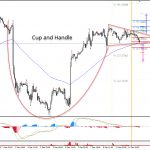
Legendary England footballer Gary Lineker best summarised the general sense of disbelief over the state of the Brexit negotiations when tweeting in July:
“A wealthy nation putting itself in a position where it has to stockpile food, medicine, etc., in times of peace is utter madness. What Are We Doing?”

Lineker’s concern was confirmed last month by the head of the British Chambers of Commerce who warned that “precision is what is required” regarding the Brexit process, rather than “declaratory statements”.
Yet today, with less than six months to go before the UK officially leaves the EU, investors still do not know if it will simply crash out with no deal on 29 March, with no transition agreement in place. This is almost unbelievable, given that the EU is the UK’s largest trading partner, taking 44% (£274bn) of UK exports in 2017, and provides 53% (£341bn) of all UK imports, according to a July report from the House of Commons library.
One problem is that the cabinet only finally agreed on its chosen option for the new EU relationship in August. In turn, this means the civil service is only now starting to be able to advise sector groups, trade associations and other experts on the key issues involved.
A second problem is that the new Brexit department had to be created virtually overnight after the June 2016 referendum, and the average age of its staff is just 31 years. Many have no personal experience of the enormously complex issues involved.
The UK Risks chart highlights the main economic and business risks that lie ahead.
The current gap between the UK and EU positions was emphasised in chief EU negotiator Michel Barnier’s recent evidence to the UK Parliament:














Leave A Comment